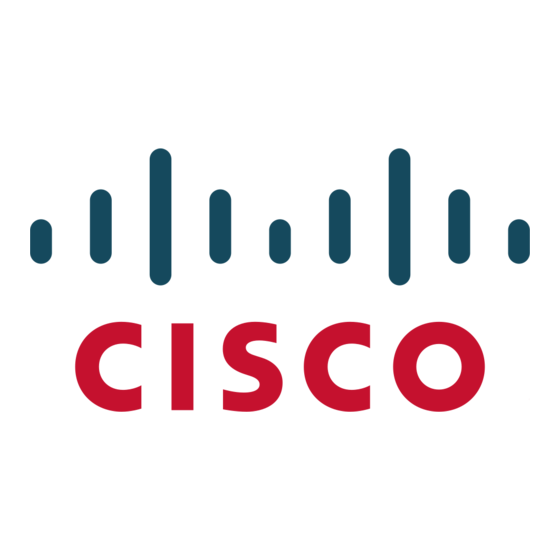Limitations and Restrictions
IP
This is the IP limitation:
When the rate of received DHCP requests exceeds 2,000 packets per minute for a long time, the response
time might be slow when you are using the console. The workaround is to use rate limiting on DHCP
traffic to prevent a denial of service attack from occurring. (CSCeb59166)
IP Telephony
These are the IP telephony limitations:
•
•
MAC Addressing Multicasting
These are the multicasting limitations:
•
•
•
•
Release Notes for the Cisco Catalyst Blade Switch 3020 for HP, Cisco IOS Release 12.2(35)SE and Later
8
Some access point devices are incorrectly discovered as IEEE 802.3af Class 1 devices. These access
points should be discovered as Cisco pre-standard devices. The show power inline user EXEC
command shows the access point as an IEEE Class 1 device. The workaround is to power the access
point by using an AC wall adaptor. (CSCin69533)
After you change the access VLAN on a port that has IEEE 802.1x enabled, the IP phone address is
removed. Because learning is restricted on IEEE 802.1x-capable ports, it takes approximately 30
seconds before the address is relearned. No workaround is necessary. (CSCea85312)
If the number of multicast routes and Internet Group Management Protocol (IGMP) groups are more
than the maximum number specified by the show sdm prefer global configuration command, the
traffic received on unknown groups is flooded in the received VLAN even though the show ip igmp
snooping multicast-table privileged EXEC command output shows otherwise. The workaround is
to reduce the number of multicast routes and IGMP snooping groups to less than the maximum
supported value. (CSCdy09008)
IGMP filtering is applied to packets that are forwarded through hardware. It is not applied to packets
that are forwarded through software. Hence, with multicast routing enabled, the first few packets are
sent from a port even when IGMP filtering is set to deny those groups on that port. There is no
workaround. (CSCdy82818)
If an IGMP report packet has two multicast group records, the switch removes or adds interfaces
depending on the order of the records in the packet:
If the ALLOW_NEW_SOURCE record is before the BLOCK_OLD_SOURCE record, the
–
switch removes the port from the group.
If the BLOCK_OLD_SOURCE record is before the ALLOW_NEW_SOURCE record, the
–
switch adds the port to the group.
There is no workaround. (CSCec20128)
When IGMP snooping is disabled and you enter the switchport block multicast interface
configuration command, IP multicast traffic is not blocked.
The switchport block multicast interface configuration command is only applicable to non-IP
multicast traffic.
There is no workaround. (CSCee16865)
OL-8918-03

